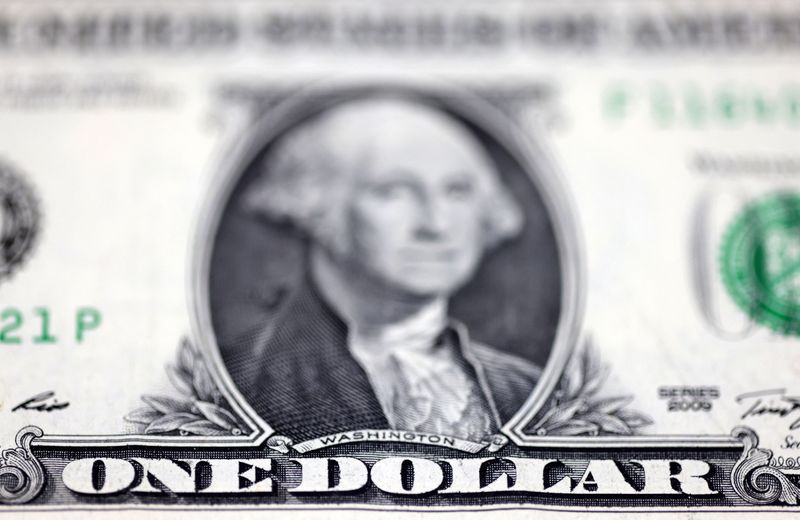By Saqib Iqbal Ahmed
NEW YORK (Reuters) -The U.S. dollar shrugged off early weakness to edge higher against a basket of currencies on Friday, after data showed U.S. business activity shrank for the first time in nearly two years in July as a services slowdown outweighed manufacturing growth.
S&P Global (NYSE:SPGI) on Friday said its preliminary - or "flash" - U.S. Composite PMI Output Index had tumbled far more than expected to 47.5 this month from a final reading of 52.3 in June.
With a reading below 50 indicating business activity had contracted, it is a development likely to feed into a vocal debate over whether the U.S. economy is back in - or near - a recession after rebounding sharply from the downturn in early 2020 at the start of the COVID-19 pandemic.
The dollar found some support from safe-haven flows late on Friday, as investors' appetite for riskier assets diminished with U.S. indexes selling off on some weak earnings reports.
Against a basket of currencies, the dollar was 0.1% higher at 106.73. For the week the index was down 1.2%.
Friday's dismal U.S. data reflects a hit to sentiment, similar to that seen elsewhere around the globe, Bipan Rai, North American head of FX strategy at CIBC Capital Markets in Toronto, said.
"That's a reflection of tighter financial conditions and also the fact that inflationary pressures remain elevated," Rai said.
Rai, however, said he wasn't reading too much into the dollar's weakness on Friday.
"Even if the U.S. economy does slow down somewhat I don't think you can extrapolate some sort of medium term dollar weakness ... because we are seeing similar things elsewhere," he said.
Overall activity in the euro zone shrank due to an accelerating downturn in manufacturing and a near-stalling of service sector growth, with inflation pushing consumers to cut back spending, S&P Global's Composite Purchasing Managers' Index, a good gauge of economic health, showed.
The euro was 0.4% lower against the dollar at $1.0196.
The British pound slipped 0.2% against the dollar to $1.1979 after data showed Britain's businesses grew at their slowest pace in 17 months in July, fuelling concerns about a slowdown in a UK economy grappling with inflation at a four-decade high.

The risk-sensitive Australian dollar was 0.26% lower at $0.6911, while the kiwi fell 0.17% to $0.6242.
In cryptocurrencies, bitcoin was about flat on the day at $23,074.82, on pace to finish the week up about 10%, as traders bet the recent bout of weakness that had engulfed the market was over.
